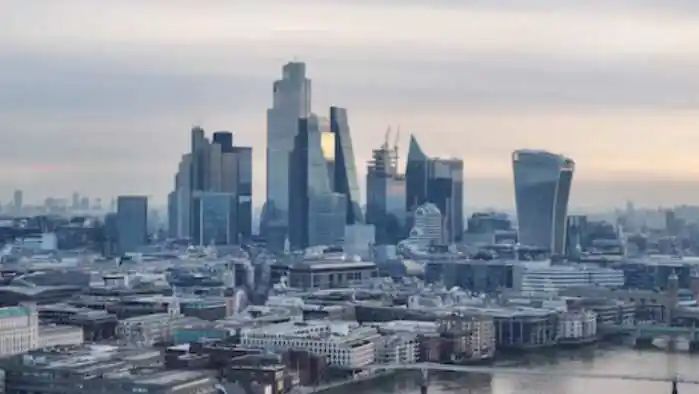UK rents skyrocket by fastest pace since 2015
The average UK rent increased by 9 per cent in the 12 months to February, up from 8.5 per cent in January, the Office for National Statistics (ONS) said.
It is the highest annual percentage change since the UK data series began in January 2015. Private rent inflation was highest in London, at 10.6 per cent, and the lowest in the North East at 5.7 per cent.
The average monthly rent in the UK is now £1,238, which is £102 higher than 12 months ago.
However, average house prices decreased by 0.6 per cent in the 12 months to January 2024. In England, they decreased by 1.5 per cent as they also did in Wales by 0.8 per cent, but increased in Scotland by 4.8 per cent.
ONS deputy director for prices, Matt Corder, said: “Brent saw the highest annual rental growth of all local areas and Melton saw the lowest, while rental prices were highest in Kensington and Chelsea and lowest in Dumfries and Galloway.
“Average UK house prices continued to fall, albeit at a slower annual rate than seen recently.
“Indeed, Scotland’s average house prices rose at their fastest annual rate for more than a year.”
The rent increase of 9 per cent is significantly above the 3.4 per inflation rate and indicates that tenants are still being hit with enormous cost increases.
Mortgage rates have increased significantly in recent years which has created two problems in the housing market. The first is that some buyers’ abandoned dreams of buying a property and have stayed in a rental market with high demand.
And the second is that costs have been passed on to buy-to-let landlords as their fixed-rate mortgages expired and they have started new deals paying much higher monthly premiums. These costs have been passed onto tenants.
A further mitigating factor has been the slowdown in the housebuilding sector due to high interest rates, higher costs for raw materials and lower demand.
Jonathan Gordon, director of wealth management at IP Global, said rental conditions in the UK were “brutal” for tenants at the moment.
He said: “Landlords are facing rising costs, which in turn has led to rent increases for tenants. This creates an extremely difficult situation for renters in the UK, as wages are often not keeping pace with rent hikes.
“While house prices have seen a slight dip, the consistently high demand for housing suggests significant price drops are unlikely.”
Ben Twomey, chief executive of Generation Rent, argued that the price increases are not just down to landlords’ costs going up as half of rented homes do not have a mortgage attached to them.
He said: “These figures are shocking but not surprising – we’ve been feeling the impact of sky-high rents and unaffordable rent increases since 2021 and we have reached the very end of what we can afford.
“As the cost of living crisis apparently eases, the cost of renting crisis is continuing at pace. Renters are being squeezed to their absolute limit and something has got to give; 9 per cent increases in a year across all tenancies is well above the rate our wages are rising, illustrating how badly renters are protected.
“This is not just down to landlords’ costs going up – more than half of privately rented homes have no mortgage attached to them – so clearly landlords are raising the rent just because their tenants have no choice but to pay these prices.
“The government needs to listen to renters and take decisive action to slam the brakes on soaring rents in the worst-hit areas. Outlawing unaffordable rent rises would give renters much-needed breathing space while the government must get to work building many more affordable and social homes to address the shortage that has caused this.”
Farm shop customer who filmed Kate and William breaks silence on conspiracy theories
Inside the private London Clinic at the centre of Kate Middleton records ‘breach’
Lowest inflation since 2021 brings hope of summer interest rate cut
Man who took betting shop job to pay for gambling addiction warns of ‘health issue’
Ed Davey calls for criminal investigation into Princess Kate medical records breach
March 2024 dates for Universal Credit and benefits as cost of living payments end




